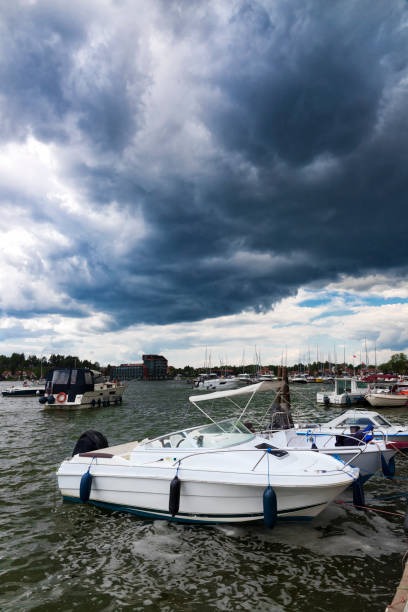When planning a day on the water, most people focus on selecting the right boat, route, and group of friends. However, weather conditions play a significant role in the safety and enjoyment of your experience, especially in areas known for fluctuating climates like those offering Tampa boat rentals. From sudden storms to strong winds and unexpected temperature changes, understanding how weather impacts boat rentals can help you make better, safer decisions.
1. Wind: The Invisible Challenge
Wind speed and direction are among the most critical factors in boating. While light breezes can make for a pleasant ride, strong winds can cause choppy waters, difficulty steering, and even dangerous conditions—especially for smaller vessels. Boat rental companies closely monitor wind forecasts and may restrict rental access or suggest alternative plans if gusts exceed safe levels.
High winds can also affect anchoring and docking. Boats may drift unexpectedly, making it difficult for inexperienced renters to maintain control. Choosing a protected bay or inland waterway might be safer than heading into open water.
2. Rain and Thunderstorms
While a drizzle may not cancel a trip, heavy rainfall and thunderstorms are major red flags for boating. Rain reduces visibility and can make the deck slippery, increasing the risk of accidents. More importantly, thunderstorms bring the threat of lightning—one of the most dangerous weather phenomena for boaters.
Most boat rental companies have strict policies regarding inclement weather. If there’s a high chance of a storm, they’ll typically cancel or reschedule the trip to prioritize safety. Always check the hourly forecast the day before and the morning of your outing.
3. Temperature and Comfort
Extreme temperatures—whether hot or cold—can affect your comfort and safety. During hot summer days, it’s easy to underestimate the risk of heatstroke or dehydration, especially when surrounded by the cooling illusion of open water. Wearing lightweight clothing, using sunscreen, and staying hydrated is crucial.
Conversely, colder temperatures require proper layering and protection from the wind chill, which can be much more intense on the water. Many rental companies recommend checking the “feels like” temperature, which factors in wind and humidity, to better prepare for the trip.
4. Tides and Currents
Tidal movements and currents, influenced by the moon and weather systems, can significantly impact your boating experience. In coastal regions, these factors can determine the accessibility of specific areas. For example, a route easily passable at high tide may become too shallow at low tide.
Strong currents can make navigation challenging, especially for beginners. They also affect your speed and fuel usage, meaning you could burn more fuel against a strong current than anticipated. Many local marinas provide tide charts and current maps—consulting these before your trip is necessary.
5. Fog and Reduced Visibility
Fog can descend quickly and obscure your view of the coastline, other boats, and navigation markers. This increases the risk of collisions and can leave you disoriented. Unless your rental boat is equipped with GPS and radar—and you’re trained to use it—it’s best to avoid boating during heavy fog conditions.
Rental companies may restrict departures when fog is forecast, particularly in areas with heavy marine traffic. If you’re already out when fog sets in, it’s crucial to slow down, use lights if available, and listen for nearby vessels.
6. The Role of Forecast Tools
Thanks to modern technology, boaters can access various weather tools to make informed decisions. Apps like Windy, NOAA Marine Weather, and AccuWeather offer real-time wind patterns, rain, waves, and more data. Even a basic marine VHF radio can alert you to changing weather conditions while on the water.
Some rentals may provide weather safety briefings before departure or even offer onboard tools to help you track incoming weather systems. Use these resources to enhance your trip’s safety and enjoyment.
7. Flexible Planning Is Key
When renting a boat, always build some flexibility into your schedule. Having a backup date or alternative activity planned can help avoid disappointment if the weather doesn’t cooperate. Many rental services offer rescheduling options for weather-related cancellations, so don’t hesitate to ask about their policies when booking.
If you’re travelling to a popular destination, it’s wise to book early and monitor weather forecasts regularly. Some areas experience seasonal weather patterns that can affect your experience. Doing some research in advance can save you a lot of hassle later.
Final Thoughts
Weather conditions are a powerful force that can either enhance or hinder your boat rental experience. Understanding and preparing for these factors improves safety and ensures a more enjoyable time on the water. With careful planning, attention to forecasts, and flexibility, you can navigate weather challenges and have a memorable day at sea.


